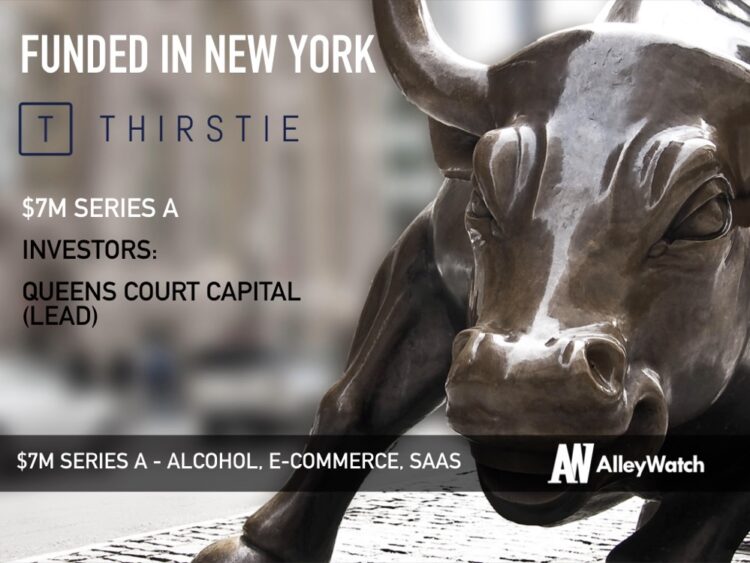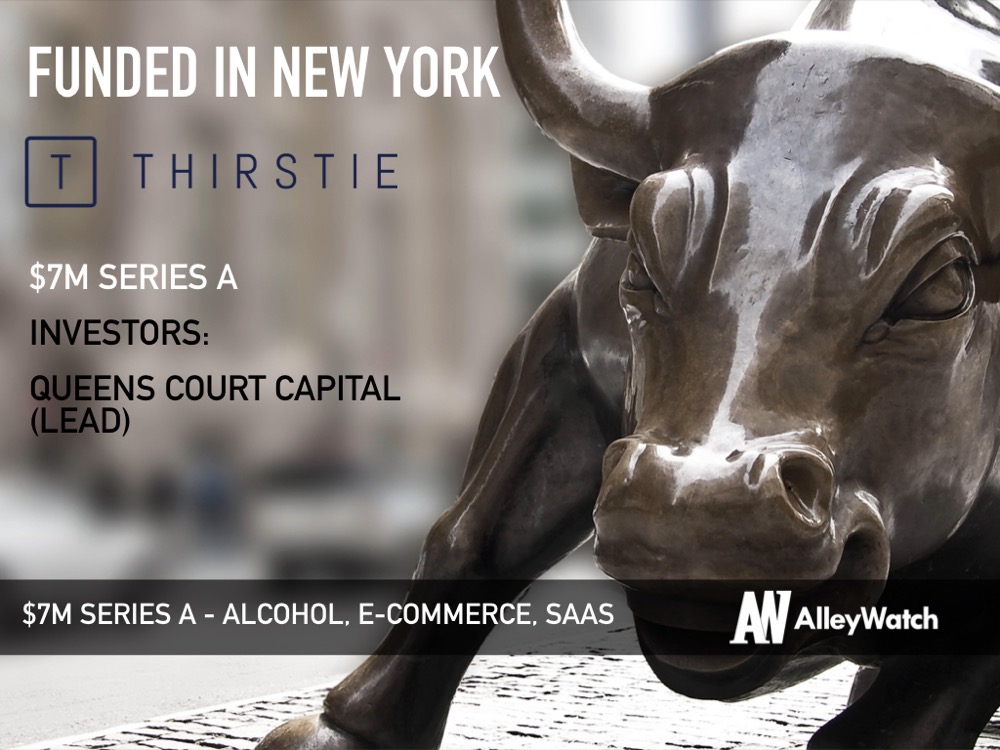While 50% of alcohol consumption is done at home in the US, less than one percent of alcohol purchases happen online for home delivery. Recognizing this significant gap in the market (a $100B+ industry in the US alone annually) is NYC startup Thirstie. Thirstie has built the industry’s most sophisticated all-in-one turnkey white-label e-commerce platform for alcohol brands, distributors, and retailers to connect to consumers. As an enterprise-focused platform, the company is able to provide actionable data to various constituents in the alcohol supply chain unlocking insights that there never before available through the traditional paper and pencil distributorship model. Thirstie is already working with a notable roster of titans in the alcohol industry including Dom Perignon, LVMH brand Clos19, and Maker’s Mark.
AlleyWatch caught up with CEO and cofounder Devaraj Southworth to learn more about the company’s start, future plans, and most recent funding round, which brings its total funding to $12M over two rounds since its founding in 2013.
Who were your investors and how much did you raise?
We just closed on an oversubscribed $7M Series A. The investment comes from investment firm Queens Court Capital, including Coach’s former CEO, Lewis Frankfort; former CEO of Citibank Joseph J. Plumeri; former Credit Suisse CEO USA, Brian Finn; and SWAT Equity Partners founder Richard Kirshenbaum.
Tell us about the product or service that Thirstie offers.
Thirstie enables liquor brands to sell their products on their own sites for the first time. We provide first-party customer as well as transactional data back to brands and partner with retailers for order fulfillment. Essentially, we connect liquor brands to their customers directly, allowing them to more effectively build their brands utilizing e-commerce.
 What inspired you to start Thirstie?
What inspired you to start Thirstie?
We founded Thirstie because we saw a number of inefficiencies in the liquor industry making it difficult for brands, distributors, and retailers to conduct business with each other. We saw an opportunity where these inefficiencies could be solved through technology and collaboration with all industry constituencies.
How is Thirstie different?
We’re the only white label solution that integrates directly with a brand site and owns and operates its own retailer network. We also provide brands ownership of customer data that enables them to make more informed business and marketing decisions.
What market does Thirstie target and how big is it?
We’re addressing a $100B + retail industry in the US (the total industry size is $230B). Half of alcohol consumption is in-home but only 0.6% of transactions take place online for home delivery.
What’s your business model?
We charge liquor brands a one-time launch fee and a monthly subscription fee, and we charge retailers a transaction fee on every order routed to them via our retailer selection algorithm.
Who do you admire in the startup world and why?
We are big fans of the Stripe founders. What they have built is outstanding and they are growing their business in a very strategic way.
What was the funding process like?
It was a relatively standard process, but unlike traditional venture firms we were put in direct contact and had the opportunity to meet many of the funds LPs. With traditional funds, you almost never get to meet the funds LPs. However, since Queens Court group is not a traditional fund, it was an amazing experience meeting the capital behind the curtain, which enabled us to understand and appreciate just how accomplished and special our investors truly are.
What are the biggest challenges that you faced while raising capital?
Many of the VCs we spoke to agreed that we were building a very successful and highly profitable business. However, they were not convinced that we had the ability to become a multi-billion dollar business in five years. For many VCs, investing in a half-billion business opportunity is just not attractive enough. Although disappointing to many entrepreneurs, it makes sense considering these VCs take on considerable risk in a multitude of investments and therefore require big wins to offset the losses they will see with startups that are not successful. For the record, we believe we have a multi-billion dollar opportunity at play; something recognized by Queens Court Capital, our lead investor.
Many of the VCs we spoke to agreed that we were building a very successful and highly profitable business. However, they were not convinced that we had the ability to become a multi-billion dollar business in five years. For many VCs, investing in a half-billion business opportunity is just not attractive enough. Although disappointing to many entrepreneurs, it makes sense considering these VCs take on considerable risk in a multitude of investments and therefore require big wins to offset the losses they will see with startups that are not successful. For the record, we believe we have a multi-billion dollar opportunity at play; something recognized by Queens Court Capital, our lead investor.
What factors about your business led your investors to write the check?
Alcohol e-commerce is growing 30 percent year-over-year vs. 20 percent for food delivery. As significant as this appears, we believe as liquor brands e-commerce enable their sites and shift their marketing dollars away from offline channels to digital, the growth will accelerate even faster. This shift to digital consumer behavior make solutions like Thirstie extremely desirable to brands in our category who are decades late to e-commerce. Investors recognize this trend and are looking to get involved.
What are the milestones you plan to achieve in the next six months?
The next 6-12 months we will make significant moves in our product roadmap, rolling out a new data sharing platform, and enhancements that will enable liquor brands to offer advanced payment methods, personalized products, and customizable subscription plans. We are also working on signing up at least a dozen other high-profile liquor brands as partners.
What advice can you offer companies in New York that do not have a fresh injection of capital in the bank?
Focus on finding product-market fit. Period. If you haven’t found the fit, you may raise institutional capital, but it won’t help you build a successful company.
Where do you see the company going now over the near term?
We are singularly focused on executing against our product roadmap, signing up additional liquor brand partners, as well as retailers.
What’s your favorite restaurant in the city?
Mari Vanna is a phenomenal restaurant. Great food and service, recommended by my cofounder, Max.




